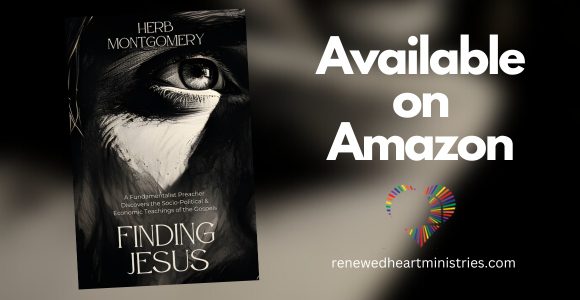
Our title this week is A Safe, Compassionate, Just Home for Everyone and our reading this week is from the gospel of Mark:
At that time Jesus came from Nazareth in Galilee and was baptized by John in the Jordan. Just as Jesus was coming up out of the water, he saw heaven being torn open and the Spirit descending on him like a dove. And a voice came from heaven: “You are my Son, whom I love; with you I am well pleased.”
Welcome Readers! Please subscribe to Social Jesus Here.
At once the Spirit sent him out into the wilderness, and he was in the wilderness forty days, being tempted by Satan. He was with the wild animals, and angels attended him.
After John was put in prison, Jesus went into Galilee, proclaiming the good news of God. “The time has come,” he said. “The kingdom of God has come near. Repent and believe the good news!” (Mark 1:9-15)
In our reading this week, we begin with Jesus traveling from the region of Galilee to the River Jordan to be baptized by John. Jesus heard something in John’s anti-establishment message and call to return to the Torah’s social justice principles that resonated with his own desire for Jewish renewal and his concern for how the Roman empire had coopted the Jewish Temple State and the scribal establishment in local synagogues. Scholars are torn as to whether Jesus actually began as a disciple of John’s, but his choice to be baptized by John affirmed that he resonated with John’s preaching enough to want to be baptized by John and be a part of John’s movement. We’ll see that this changes later, when John is imprisoned.
Mark’s language around John’s baptism of Jesus was also meant to remind Mark’s original audience of language in Isaiah. Whether we date Mark’s gospel to shortly before Rome’s destruction of Jerusalem or shortly afterward, liberation from Roman occupation and oppression was the prevailing impulse among Mark’s listeners. Getting to heaven was not on the hearts and minds of Mark’s listeners. Getting out from under the thumb of Rome was.
The language of the heavens being torn open harkens back to Isaiah 64:
Oh, that you would rend the heavens and come down,
that the mountains would tremble before you!
As when fire sets twigs ablaze
and causes water to boil,
come down to make your name known to your enemies
and cause the nations to quake before you!
For when you did awesome things that we did not expect,
you came down, and the mountains trembled before you.
Since ancient times no one has heard,
no ear has perceived,
no eye has seen any God besides you,
who acts on behalf of those who wait for him.
You come to the help of those who gladly do right,
who remember your ways. (Isaiah 64:1-5)
The Spirit descending and declaring Jesus’s favor also harkens back to a passage in Isaiah:
Here is my servant, whom I uphold,
my chosen one in whom I delight;
I will put my Spirit on him,
and he will bring justice to the nations . . .
In faithfulness he will bring forth justice;
he will not falter or be discouraged
till he establishes justice on earth. (Isaiah 42:1-4)
It seems the writer of Mark intended to associate the desire for liberation from Rome with Isaiah’s language of establishing of justice on the earth among the nations. That’s why this week’s story attaches these references to Jesus’ baptism. In Jesus, the early followers of Jesus perceived teachings that would end oppression and establish justice for all.
After his baptism, Jesus immediately goes into the wilderness for forty days. We’ll unpack Mark’s version, next.
(Read Part 2)
Herb’s latest book, Finding Jesus: A Fundamentalist Preacher Discovers the Soci0-Political and Economic Teachings of the Gospels is available now on Amazon.















